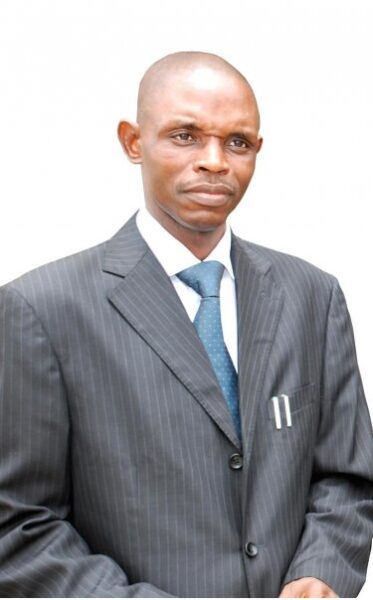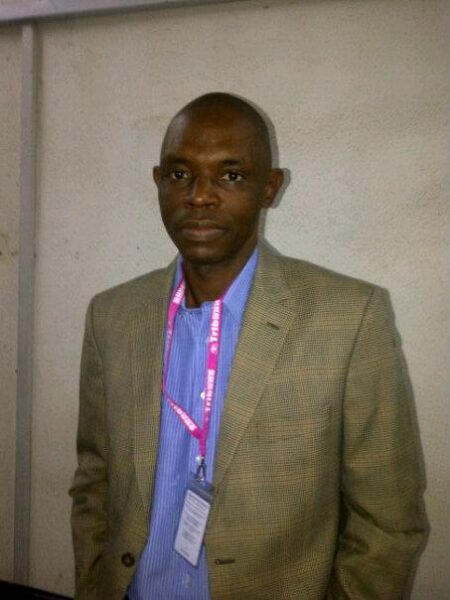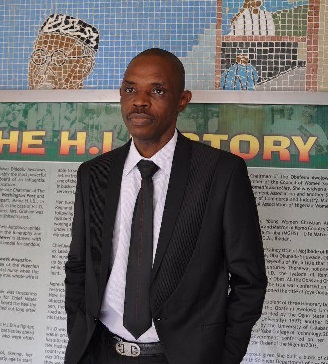By Toyin Falola
As long as a society has people who constantly evaluate and project the conclusion of their evaluations, they are most likely going to have the advantage of understanding their trajectory and knowing what and where they need to make necessary adjustments for the collective good. Lasisi Olagunji is an evaluator of the Nigerian society.
Any society that sinks into the abyss of depletion begins when its notifiers are prevented from stating what they consider important. People who express their opinions, especially on issues that affect the majority, may be guilty of being overly sensitive in most cases, but they cannot be accused of encouraging bad behavior as they would always stand against what is not right. But when they decide to go mute, particularly on issues that border on collective safety and progress, their country’s progress and stability would be compromised in no time.

People like Lagunju, who voice their displeasure, make the most valuable contributions to societal development. When you raise your voice about issues that are not in line with the expectations or aspirations of a people, you raise their conscience and consciousness about issues they have previously dismissed or seen as unimportant. This is because human nature is programmed to get carried away by ephemeral things. This tendency is even more pronounced among those at the helm of affairs, as they often do not have the luxury of being abreast of everything happening in their society. However, some individuals take it upon themselves to keep the public and the leaders aware of critical issues in society. In Nigeria, Lasisi Olagunju is a preeminent example. He has accepted the responsibility of raising people’s consciousness on issues that truly matter.
Considering the ethnic configuration of the country, anyone interested in its progress must understand its peculiarities. One of the usually unspoken codes of coexistence in the country is the respect for people’s cultural and geographical boundaries, as well as comportment that indicates the readiness to extend politeness and support to local host communities. The peaceful coexistence of the various ethnic nationalities has largely been built on this common understanding. Anytime this code is violated, the reactions, especially from the host communities, are seen in various dimensions. An example is the Oro festival championed by Lagos conservatives who wanted to send an ominous warning to the visitors they believed had a poor understanding of their importance. In essence, it was an act aimed at maintaining their territorial integrity.
However, such an engagement needs an awareness typified by the ceaseless projection of those who believe that the conditions and situation are not friendly for their comfort. Therefore, we consider individuals who make these comments as a gong, for they are the voices that continue to establish themselves regardless of the reactions they provoke. It is not coincidental that this category of people has always been known to have an informed understanding of how things operate, and they leverage this knowledge to lend their voices to the plight of the masses.

In recent years, mutual ethnic suspicion has been rife in Nigeria, heightened by numerous instances of blatant confrontations between immigrants and their hosts. Many individuals who were given the latitude to enjoy themselves in a far and different cultural landscape have suddenly wanted to take advantage of that leniency to impose ideas that they would not tolerate in their communities. When confrontations arise from such an edgy problem, it could potentially lead to problems of unimaginable proportions.
In one of his writings, Olagunju examined the influx of foreigners into the cultural and economic space of the Yorùbá people in the Southwest, warning that it could become a keg of gunpowder if not effectively managed. Malians, Chadians, and Nigeriens have invaded Nigeria in unprecedented numbers recently, which could provoke confrontations in the future. The social commentator Olagunju, laments that unchecked human flooding, which has become a prominent topic in Nigerian discursive space, will always bring challenges rather than benefits. He also warns that not being pragmatic could lead to a problematic future with unforeseen consequences.
Newspaper platforms have always provided educative insights on the migration of people into Nigeria, highlighting that people choose to live in the country because of its multiethnic and multicultural composure. However, Olagunju sees this from the angle of state failure and argues that such an influx cannot but bring about unfortunate consequences. According to him, when people come in large numbers to a place without appropriate rules of engagement, they become the foundation of the problems that will arise in the future.
Unregulated migration has the potential to overstretch available infrastructure at the most basic level. Olagunju implies that infrastructural projects and innovations are always designed with specific numbers of people in mind. Consequently, when unregulated migration occurs from one place to another, the potential consequences are severe. At the infrastructural level, it will stretch the people and reduce their opportunity for economic sustainability. Not only will the cluster damage existing infrastructural innovation, but it will also create a loophole that cunning and recalcitrant individuals can exploit.
The economic consequences of unregulated migration cannot be over-emphasized. Although population increase can logically bring about prosperity for the host, this is not the case when the influx is not regulated. People who come into other people’s space uninvited often have motives that are unclear to the host. On the economic front, for instance, the host country’s economy can become destabilized or more volatile for citizens already struggling to make a living. The cultural conflagration, demographic outbursts, and economic challenges resulting from unregulated migration highlight the need for reevaluation. As forward-looking individuals, it is crucial to reassess how such issues are managed to mitigate potential problems.
Meanwhile, there is no end to Olagunju’s evaluation of social issues as that has always been his knowledge area, where he extracts a body of ideas that can facilitate progress in human society, especially in Nigeria. He remains impartial in his analysis of the demographic shifts occasioned by indiscriminate movements and unregulated migrations in the country. For instance, he has examined how members of the armed forces are treated in some parts of the country, which indicates the people’s desire for a vindictive response. In some other cases, he has acknowledged the bold initiatives taken by military personnel to rescue the country from the abyss of terror.
Overpopulation in a country allows various moral burdens, and unless the relevant authorities make critical decisions, the consequences for the people will be unimaginable. As internal mass migration continues, security challenges pile up, making the country seem like a laboratory of security oddities where anything can happen for any reason. Kidnapping is one of the dangerous consequences of social decay, with people exploiting the chaos to commit heinous acts that always put others in danger. Olagunju’s evaluation of the influx of foreigners into the Southwest stems from his understanding that it can become potentially dangerous for the host community.

Homelessness and kidnapping, among other sordid challenges, are underlying problems associated with unregulated migration. When a multitude of individuals converge within a political space, the government is expected to take responsibility because they are seen as the leaders to alleviate the fear of the masses. However, the current problem in Nigeria is different. The government is expected to take care of individuals to whom they owe no moral responsibility, and when they do not do this, it creates more grievous challenges for the country and its populace. For instance, the issue of homelessness demands that the government provide an enduring solution. This is underscored by the awareness that people who do not have a home of their own are the potential problems of society. If anything, they make it eternally impossible for others to enjoy peace in their space. With little or nothing to lose in emergencies, they take advantage of the situation to complicate matters further.
Lasisi Olagunju has continued to educate us all that a lack of awareness about one’s condition is the beginning of problems for the entire population. He believes the government must understand its mandate to bring home the dividends of democracy to the people. However, achieving this goal will be impossible if issues like unregulated migration and its associated challenges keep militating against the government’s efforts.
PS: This is Part 2 of a Six-Part Series. I wish to express my gratitude to my Tanzanian-based host.

I can’t wait to read the next edition. I am with you 100% on your assessment of this unique journalist, one in a million in a space filled with junk and compromised writings. Olagunju is a genius writer of the truth, and he does so with precision and unabated courage cum professionalism!